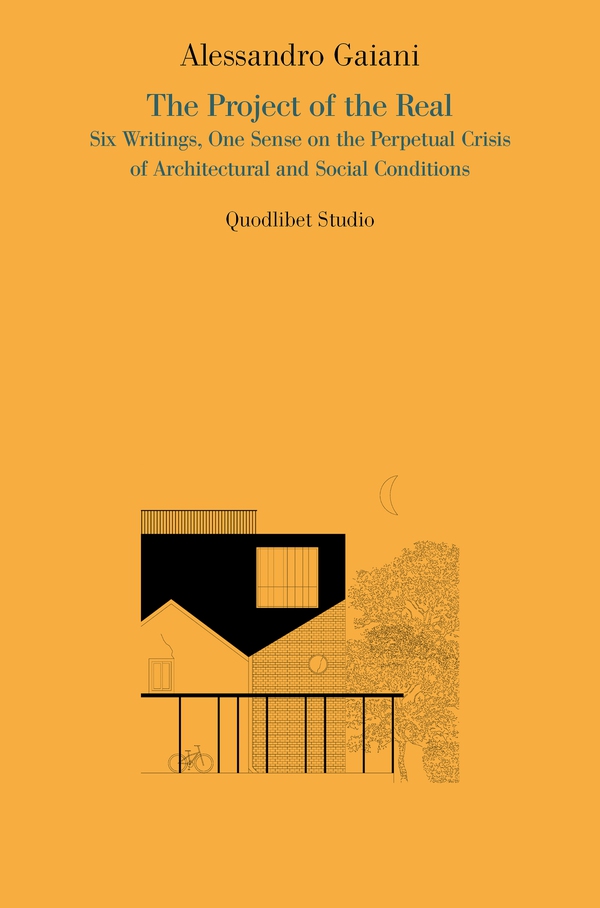Per gli acquisti online: spese di spedizione gratuite da 25€ - Per i soci Coop o con tessera fedeltà Librerie.coop gratuite a partire da 19€.
EBOOK - pdf

The Project of the Real
Protezione:
Social DRM
€ 9,60
Dettagli
| FORMATO | |
| EDITORE | Quodlibet |
| EAN | 9788822913432 |
| ANNO PUBBLICAZIONE | 2022 |
| CATEGORIA |
Architettura e urbanistica |
| LINGUA | eng |
Dispositivi supportati
Computer
E-Readers
iPhone/iPad
Androids
Kindle
Kobo
Descrizione
The new century began with an economic crisis and environmentaland health catastrophes, and is projecting us into a new complexdimension of our living in which we are witnessing a fundamentalparadigm shift, not only in our understanding of the present, butof the future in particular. We can no longer use methods and systems belonging to the scientific and reductionist paradigm of therecent past, because we are currently in a new and different condition, in an ongoing search for ethical and social relations. Thescientific paradigm in which everything was decomposed and thenreorganized according to a universal principle of knowledge, orthe reduction of complexity into simplicity, is currently no longerapplicable to knowledge in general, to living the Earth, and evenless so to architecture. The disjunctive logic of Cartesian analytical theory, which distinguishes and separates and decontextualizes, used by such masters of the past century as Le Corbusier, Miesvan der Rohe, and Aldo Rossi, becomes insufficient. Instead, it isnecessary to differentiate and connect, to conceive the project assomething that is not exhausted in the juxtaposition or the sumof the parts, but rather as a system full of links, interactions, relationships, transversality, variability, mutation, and adaptation. Inthe age of complexity, we must therefore refer to a new approach,based on architectural and social activism, one that is ecosystemic,processual, hybrid, and inclusive.
This book is a collection of six writings and projects describing thevisions of possible worlds that prefigure a different approach thanin the past, in which architecture, while operating on the existingthat has been discarded, is asked to use new adaptive tools that,as a catalytic agent, can trigger chain reactions within the project of mutation, and activate a process of re-signification favoring a “syntagmatic overwriting” of a new social and architecturalidentity. Tools that in their overall constitutive identity constantlycontribute to the change and co-production of the conditions ofcomplex reciprocity with the existing, defining an approach thatplaces architecture in an evolutionary dimension.
This book is a collection of six writings and projects describing thevisions of possible worlds that prefigure a different approach thanin the past, in which architecture, while operating on the existingthat has been discarded, is asked to use new adaptive tools that,as a catalytic agent, can trigger chain reactions within the project of mutation, and activate a process of re-signification favoring a “syntagmatic overwriting” of a new social and architecturalidentity. Tools that in their overall constitutive identity constantlycontribute to the change and co-production of the conditions ofcomplex reciprocity with the existing, defining an approach thatplaces architecture in an evolutionary dimension.
